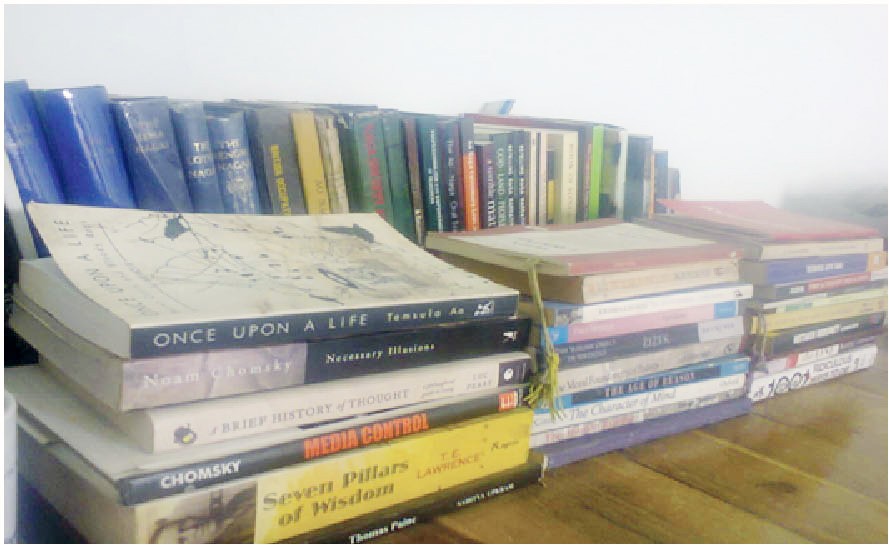
“Knowledge is Power”…and it’s all between the covers of the book.
Dr Asangba Tzudir
Dimapur | May 11
Any civilized society is marked by an intellectual environment besides civic sensibility and one that sets high moral standards. The case of Nagaland state ostensibly presents a looming skepticism over the value of knowledge and thereby ‘truth,’ that we are confronted by a major crises - intellectual bankruptcy. This has happened to a society that lacks reading culture.
Reading is a pleasurable activity. But what makes it pleasurable? Why do people who love to read love to read? I suppose only an avid reader or a ‘book worm’ will know. But whatever it is that makes reading books pleasurable, books are windows that open up your imagination and let you travel across the unbounded world of knowledge. Sadly, there seems to be a lack of reading culture amongst youngsters especially students.
Chumben Merry, a B.A student of Dimapur Government College opines that, “students are not encouraged by teachers to read books, magazines, GK, etc. Our college library does not have any latest magazine. With our focus only on course study our minds becomes static and not dynamic.”
Rongsenkala, who teaches at CHSS Dimapur, says that, “the lack of reading culture among students is because social networking sites have robbed them of their time and imagination. We are losing our oral tradition. Today’s parents/elders lack a sense of story-telling…thus there is a failure to instill the spirit of inquisitiveness or the thirst for more knowledge through reading.”
As Tsutsowe Kupa, EAC (P), aptly puts, “If our environment itself does not produce incentives for reading, then the question of motivation to read does not arise.” He laments the lack of intellectual and spiritual search among children, who are more into material and social nourishment, which is tangible besides its associated immediacy having returns that are visible and worldly desirable.
Bokali Shohe cites the fast lifestyle they live in today. They are also overtly exposed to technology and media culture. TV keeps them entertained with movies faster than they can read a story in a book. In such a lifestyle, reading books and using their imagination is no longer considered an ideal way to spend their time.
Vits Savi Nagi from Kohima says that, “reading is hardly encouraged apart from syllabus at schools.” She adds, given the context, what is dynamic before the eyes seems more appealing such as social media, technology, etc. irrespective of how substantial its contents might be rather than the static matter of print.
Imsuienla Jamir, who teaches at GHSS, Jalukie, laments the lack of proper libraries in most institutions. She adds, “Amazingly, there is hardly any proper bookstore in the state. There is hardly any readership amongst the teachers themselves and hence cannot influence or encourage.”
First and foremost, one cannot be forced into reading unless certain interest is generated in their minds which are already trapped in a ‘virtual attack.’ Reading should be done for the sake of reading. Knowledge and learning should not be seen as a tool to get into jobs. If we only stack it within the end object of getting a job, then that’s full stop to knowledge and education. Of course it is important to get a job but we need to approach knowledge and education for the sake of it, so that reading and learning becomes pleasurable and fun. This calls for sensibility and collective responsibility of parents, teachers, students and society at large.
Nagaland finds itself robbed of an intellectual environment and there is an urgency to revive the culture of reading towards building a critically thinking society. Within the sparse reading, there is also a ‘compartmentalized exclusivity’ where certain books are only confined to certain groups or sections of people. Knowledge needs to be channeled and shared. Abraham Lincoln said, “The things I want to know are in books.” They are integral as well as forms the basis for thinking.
On a redeeming note, my spirits brightened up with hope for Nagas on learning that the favorite authors of the twin sisters and HSLC toppers, Mesano Peseyie and Medeno Peseyie included classic writers like Charles Dickens and Jane Austen. They just passed HSLC but are already exposed to such books.






